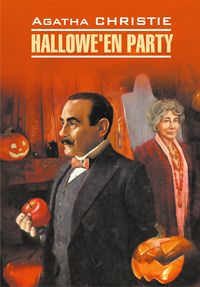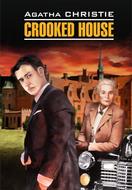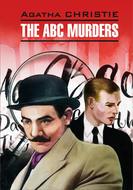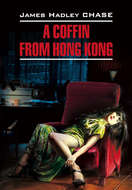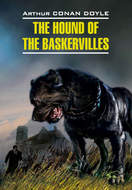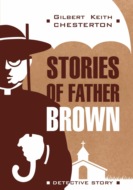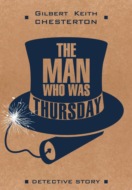Kitabı oku: «Hallowe'en Party / Вечеринка на Хэллоуин. Книга для чтения на английском языке», sayfa 3
CHAPTER 5
Hercule Poirot looked over the small gate which gave admission to Pine Crest. It was a modern, perky little house, nicely built. Hercule Poirot was slightly out of breath. the small, neat house in front of him was very suitably named. It was on a hill top, and the hill top was planted with a few sparse pines. It had a small neat garden and a large elderly man was trundling along a path a big tin galvanized waterer41.
Superintendent42 Spence’s hair was now grey all over instead of having a neat touch of grey hair at the temples. He had not shrunk much in girth. He stopped trundling his can and looked at the visitor at the gate. Hercule Poirot stood there without moving.
‘God bless my soul,’ said Superintendent Spence. ‘It must be. It can’t be but it is. Yes, it must be. Hercule Poirot, as I live.’
‘Aha,’ said Hercule Poirot, ‘you know me. That is gratifying.’
‘May your moustaches never grow less,’ said Spence.
He abandoned the watering can and came down to the gate.
‘Diabolical weeds,’ he said. ‘And what brings you down here?’
‘What has brought me to many places in my time,’ said Hercule Poirot, ‘and what once a good many years ago brought you to see me. Murder.’
‘I’ve done with murder,’ said Spence, ‘except in the case of weeds. That’s what I’m doing now. Applying weed killer. Never so easy as you think, something’s always wrong, usually the weather. Mustn’t be too wet, mustn’t be too dry and all the rest of it. How did you know where to find me?’ he asked as he unlatched the gate and Poirot passed through.
‘You sent me a Christmas card. It had your new address notified on it.’
‘Ah yes, so I did. I’m old-fashioned, you know. I like to send round cards at Christmas time to a few old friends.’
‘I appreciate that,’ said Poirot.
Spence said, ‘I’m an old man now.’
‘We are both old men.’
‘Not much grey in your hair,’ said Spence.
‘I attend to that with a bottle,’ said Hercule Poirot. ‘There is no need to appear in public with grey hair unless you wish to do so.’
‘Well, I don’t think jet black43 would suit me,’ said Spence.
‘I agree,’ said Poirot. ‘You look most distinguished with grey hair.’
‘I should never think of myself as a distinguished man.’
‘I think of you as such. Why have you come to live in Woodleigh Common?’
‘As a matter of fact, I came here to join forces with a sister of mine. She lost her husband, her children are married and living abroad, one in Australia and the other in South Africa. So I moved in here. Pensions don’t go far nowadays44, but we do pretty comfortably living together. Come and sit down.’
He led the way on to the small glazed-in verandah where there were chairs and a table or two. The autumn sun fell pleasantly upon this retreat.
‘What shall I get you?’ said Spence. ‘No fancy stuff here, I’m afraid. No blackcurrant or rose hip syrup or any of your patent things. Beer? Or shall I get Elspeth to make you a cup of tea? or I can do you a shandy45 or Coca-Cola or some cocoa if you like it. My sister, Elspeth, is a cocoa drinker.’
‘You are very kind. For me, I think a shandy. The ginger beer and the beer? That is right, is it not?’
‘Absolutely so.’
He went into the house and returned shortly afterwards carrying two large glass mugs. ‘I’m joining you,’ he said.
He drew a chair up to the table and sat down, placing the two glasses in front of himself and Poirot.
‘What was it you said just now?’ he said, raising his glass. ‘We won’t say “Here’s to crime.” I’ve done with crime, and if you mean the crime I think you do, in fact which I think you have to do, because I don’t recall any other crime just lately, I don’t like the particular form of murder we’ve just had.’
‘No. I do not think you would do so.’
‘We are talking about the child who had her head shoved into a bucket?’
‘Yes,’ said Poirot, ‘that is what I am talking about.’
‘I don’t know why you come to me,’ said Spence. ‘I’m nothing to do with the police nowadays. All that’s over many years ago.’
‘Once a policeman,’ said Hercule Poirot, ‘always a policeman. That is to say, there is always the point of view of the policeman behind the point of view of the ordinary man. I know, I who talk to you. I, too, started in the police force in my country.’
‘Yes, so you did. I remember now your telling me. Well, I suppose one’s outlook is a bit slanted, but it’s a long time since I’ve had any active connection.’
‘But you hear the gossip,’ said Poirot. ‘You have friends of your own trade. You will hear what they think or suspect or what they know.’
Spence sighed.
‘One knows too much,’ he said, ‘that is one of the troubles nowadays. There is a crime, a crime of which the pattern is familiar, and you know, that is to say the active police officers know, pretty well who’s probably done that crime. They don’t tell the newspapers but they make their inquiries, and they know. But whether they’re going to get any further than that—well, things have their difficulties.’
‘You mean the wives and the girl friends and the rest of it?’
‘Partly that, yes. In the end, perhaps, one gets one’s man. Sometimes a year or two passes. I’d say, you know, roughly, Poirot, that more girls nowadays marry wrong ’uns46 than they ever used to in my time.’
Hercule Poirot considered, pulling his moustaches.
‘Yes,’ he said, ‘I can see that that might be so. I suspect that girls have always been partial to the bad lots47, as you say, but in the past there were safeguards.’
‘That’s right. People were looking after them. Their mothers looked after them. Their aunts and their older sisters looked after them. Their younger sisters and brothers knew what was going on. Their fathers were not averse to kicking the wrong young men out of the house. Sometimes, of course, the girls used to run away with one of the bad lots. Nowadays there’s no need even to do that. Mother doesn’t know who the girl’s out with, father’s not told who the girl is out with, brothers know who the girl is out with but they think “more fool her”48. If the parents refuse consent, the couple go before a magistrate and manage to get permission to marry, and then when the young man who everyone knows is a bad lot proceeds to prove to everybody, including his wife, that he is a bad lot, the fat’s in the fire49! But love’s love; the girl doesn’t want to think that her Henry has these revolting habits, these criminal tendencies, and all the rest of it. She’ll lie for him, swear black’s white for him and everything else. Yes, it’s difficult. Difficult for us, I mean. Well, there’s no good going on saying things were better in the old days. Perhaps we only thought so. Anyway, Poirot, how did you get yourself mixed up in all this? This isn’t your part of the country, is it? Always thought you lived in London. You used to when I knew you.’
‘I still live in London. I involved myself here at the request of a friend, Mrs Oliver. You remember Mrs Oliver?’
Spence raised his head, closed his eyes and appeared to reflect.
‘Mrs Oliver? Can’t say that I do.’
‘She writes books. Detective stories. You met her, if you will throw your mind back, during the time that you persuaded me to investigate the murder of Mrs McGinty. You will not have forgotten Mrs McGinty?’
‘Good lord, no. But it was a long time ago. You did me a good turn50 there, Poirot, a very good turn. I went to you for help and you didn’t let me down.’
‘I was honoured—flattered—that you should come to consult me,’ said Poirot. ‘I must say that I despaired once or twice. The man we had to save—to save his neck in those days I believe, it is long ago enough for that—was a man who was excessively difficult to do anything for. The kind of standard example of how not to do anything useful for himself.’
‘Married that girl, didn’t he? The wet one. Not the bright one with the peroxide hair51. Wonder how they got on together. Have you ever heard about it?’
‘No,’ said Poirot. ‘I presume all goes well with them.’
‘Can’t see what she saw in him.’
‘It is difficult,’ said Poirot, ‘but it is one of the great consolations in nature that a man, however unattractive, will find that he is attractive—to some woman. One can only say or hope that they married and lived happily ever afterwards.’
‘Shouldn’t think they lived happily ever afterwards if they had to have Mother to live with them.’
‘No, indeed,’ said Poirot. ‘Or Step-father,’ he added.
‘Well,’ said Spence, ‘here we are talking of old days again. All that’s over. I always thought that man, can’t remember his name now, ought to have run an undertaking parlour52. Had just the face and manner for it. Perhaps he did. The girl had some money, didn’t she? Yes, he’d have made a very good undertaker. I can see him, all in black, calling for orders for the funeral. Perhaps he can even have been enthusiastic over the right kind of elm or teak or whatever they use for coffins. But he’d never have made good selling insurance or real estate. Anyway, don’t let’s harp back53.’ Then he said suddenly, ‘Mrs Oliver. Ariadne Oliver. Apples. Is that how she’s got herself mixed up in this? That poor child got her head shoved under water in a bucket of floating apples, didn’t she, at a party? Is that what interested Mrs Oliver?’
‘I don’t think she was particularly attracted because of the apples,’ said Poirot, ‘but she was at the party.’
‘Do you say she lived here?’
‘No, she does not live here. She was staying with a friend, a Mrs Butler.’
‘Butler?’ Yes, I know her. Lives down not far from the church. Widow. Husband was an airline pilot. Has a daughter. Rather nice-looking girl. Pretty manners. Mrs Butler’s rather an attractive woman, don’t you think so?’
‘I have as yet barely met her, but, yes, I thought she was very attractive.’
‘And how does this concern you, Poirot? You weren’t here when it happened?’
‘No. Mrs Oliver came to me in London. She was upset, very upset. She wanted me to do something.’
A faint smile showed on Superintendent Spence’s face.
‘I see. Same old story. I came up to you, too, because I wanted you to do something.’
‘And I have carried things one step further,’ said Poirot. ‘I have come to you.’
‘Because you want me to do something? I tell you, there’s nothing I can do.’
‘Oh yes there is. You can tell me all about the people. The people who live here. The people who went to that party. The fathers and mothers of the children who were at the party. The school, the teachers, the lawyers, the doctors. Somebody, during a party, induced a child to kneel down, and perhaps, laughing, saying: “I’ll show you the best way to get hold of an apple with your teeth. I know the trick of it.” And then he or she—whoever it was—put a hand on that girl’s head. There wouldn’t have been much struggle or noise or anything of that kind.’
‘A nasty business,’ said Spence. ‘I thought so when I heard about it. What do you want to know? I’ve been here a year. My sister’s been here longer—two or three years. It’s not a big community. It’s not a particularly settled one either. People come and go. The husband has a job in either Medchester or Great Canning, or one of the other places round about. Their children go to school here. Then perhaps the husband changes his job and they go somewhere else. It’s not a fixed community. Some of the people have been here a long time, Miss Emlyn, the schoolmistress, has, Dr Ferguson has. But on the whole, it fluctuates a bit.’
‘One supposes,’ said Hercule Poirot, ‘that having agreed with you that this was a nasty business, I might hope that you would know who are the nasty people here.’
‘Yes,’ said Spence. ‘It’s the first thing one looks for, isn’t it? And the next thing one looks for is a nasty adolescent in a thing of this kind. Who wants to strangle or drown or get rid of a lump of a girl of thirteen? There doesn’t seem to have been any evidence of a sexual assault or anything of that kind, which would be the first thing one looks for. Plenty of that sort of thing in every small town or village nowadays. There again, I think there’s more of it than there used to be in my young day. we had our mentally disturbed, or whatever they call them, but not so many as we have now. I expect there are more of them let out of the place they ought to be kept safe in. All our mental homes are too full; over-crowded, so doctors say “Let him or her lead a normal life. Go back and live with his relatives,” etc. And then the nasty bit of goods, or the poor afflicted fellow, whichever way you like to look at it, gets the urge again and another young woman goes out walking and is found in a gravel pit54, or is silly enough to take lifts in a car. Children don’t come home from school because they’ve accepted a lift from a stranger, although they’ve been warned not to. Yes, there’s a lot of that nowadays.’
‘Does that quite fit the pattern we have here?’
‘Well, it’s the first thing one thinks of,’ said Spence. ‘Somebody was at the party who had the urge, shall we say. Perhaps he’d done it before, perhaps he’d only wanted to do it. I’d say roughly that there might be some past history of assaulting a child somewhere. As far as I know, nobody’s come up with anything of that kind. Not officially, I mean. There were two in the right age group at the party. Nicholas Ransom, nice-looking lad, seventeen or eighteen. He’d be the right age. Comes from the East Coast or somewhere like that, I think. Seems all right. Looks normal enough, but who knows? And there’s Desmond, remanded once for a psychiatric report, but I wouldn’t say there was much to it. It’s got to be someone at the party, though of course I suppose anyone could have come in from outside. A house isn’t usually locked up during a party. There’s a side door open, or a side window. One of our half-baked people55, I suppose could have come along to see what was on and sneaked in. A pretty big risk to take. Would a child agree, a child who’d gone to a party, to go playing apple games with anyone she didn’t know? Anyway, you haven’t explained yet, Poirot, what brings you into it. You said it was Mrs Oliver. Some wild idea of hers?’
‘Not exactly a wild idea,’ said Poirot. ‘It is true that writers are prone to wild ideas. Ideas, perhaps, which are on the far side of probability. But this was simply something that she heard the girl say.’
‘What, the child Joyce?’
‘Yes.’
Spence leant forward and looked at Poirot inquiringly.
‘I will tell you,’ said Poirot.
Quietly and succinctly he recounted the story as Mrs Oliver had told it to him.
‘I see,’ said Spence. He rubbed his moustache. ‘The girl said that, did she? Said she’d seen a murder committed. Did she say when or how?’
‘No,’ said Poirot.
‘What led up to it?’
‘Some remark, I think, about the murders in Mrs Oli ver’s books. Somebody said something about it to Mrs Oliver. One of the children, I think, to the effect that there wasn’t enough blood in her books or enough bodies. And then Joyce spoke up and said she’d seen a murder once.’
‘Boasted of it? That’s the impression you’re giving me.’
‘That’s the impression Mrs Oliver got. Yes, she boasted of it.’
‘It mightn’t have been true.’
‘No, it might not have been true at all,’ said Poirot.
‘Children often make these extravagant statements when they wish to call attention to themselves or to make an effect. On the other hand, it might have been true. Is that what you think?’
‘I do not know,’ said Poirot. ‘A child boasts of having witnessed a murder. Only a few hours later, that child is dead. You must admit that there are grounds for believing that it might—it’s a far-fetched idea perhaps—but it might have been cause and effect. If so, somebody lost no time.’
‘Definitely,’ said Spence. ‘How many were present at the time the girl made her statement re56 murder, do you know exactly?’
‘All that Mrs Oliver said was that she thought there were about fourteen or fifteen people, perhaps more. Five or six children, five or six grown-ups who were running the show. But for exact information I must rely on you.’
‘Well, that will be easy enough,’ said Spence. ‘I don’t say I know off-hand at the moment, but it’s easily obtained from the locals. As to the party itself, I know pretty well already. A preponderance of women, on the whole. Fathers don’t turn up much at children’s parties. But they look in, sometimes, or come to take their children home. Dr Ferguson was there, the vicar was there. Otherwise, mothers, aunts, social workers, two teachers from the school. Oh, I can give you a list—and roughly about fourteen children. The youngest not more than ten—running on into teenagers57.’
‘And I suppose you would know the list of probables amongst them?’ said Poirot.
‘Well, it won’t be so easy now if what you think is true.’ ‘You mean you are no longer looking for a sexually disturbed personality. You are looking instead for somebody who has committed a murder and got away with it, someone who never expected it to be found out and who suddenly got a nasty shock.’
‘Blest if I can think who it could have been, all the same,’ said Spence. ‘I shouldn’t have said we had any likely murderers round here. And certainly nothing spectacular in the way of murders.’
‘One can have likely murderers anywhere,’ said Poirot, ‘or shall I say unlikely murderers, but nevertheless murderers. Because unlikely murderers are not so prone to be suspected. There is probably not very much evidence against them, and it would be a rude shock to such a murderer to find that there had actually been an eye-witness to his or her crime.’
‘Why didn’t Joyce say anything at the time? That’s what I’d like to know. Was she bribed to silence by someone, do you think? Too risky surely.’
‘No,’ said Poirot. ‘I gather from what Mrs Oliver mentioned that she didn’t recognize that it was a murder she was looking at the time.’
‘Oh, surely that’s most unlikely,’ said Spence.
‘Not necessarily,’ said Poirot. ‘A child of thirteen was speaking. She was remembering something she’d seen in the past. We don’t know exactly when. It might have been three or even four years previously. She saw something but she didn’t realize its true significance. That might apply to a lot of things you know, mon cher58. Some rather peculiar car accident. A car where it appeared that the driver drove straight at the person who was injured or perhaps killed. A child might not realize it was deliberate at the time. But something someone said, or something she saw or heard a year or two later might awaken her memory and she’d think perhaps: “A or B or X did it on purpose.” “Perhaps it was really a murder, not just an accident.” And there are plenty of other possibilities. Some of them I will admit suggested by my friend, Mrs Oliver, who can easily come up with about twelve different solutions to everything, most of them not very probable but all of them faintly possible. Tablets added to a cup of tea administered to someone. Roughly that sort of thing. A push perhaps on a dangerous spot. You have no cliffs here, which is rather a pity from the point of view of likely theories. Yes, I think there could be plenty of possibilities. Perhaps it is some murder story that the girl reads which recalls to her an incident. It may have been an incident that puzzled her at the time, and she might, when she reads the story, say: “well, that might have been so-and-so and so-and-so. I wonder if he or she did it on purpose?” yes, there are a lot of possibilities.’
‘And you have come here to inquire into them?’
‘It would be in the public interest, I think, don’t you?’ said Poirot.
‘Ah, we’re to be public spirited59, are we, you and I?’
‘You can at least give me information,’ said Poirot. ‘You know the people here.’
‘I’ll do what I can,’ said Spence. ‘And I’ll rope in Elspeth. There’s not much about people she doesn’t know.’
CHAPTER 6
Satisfied with what he had achieved, Poirot took leave of his friend.
The information he wanted would be forthcoming—he had no doubt as to that. He had got Spence interested. And Spence, once set upon a trail, was not one to relinquish it. His reputation as a retired high-ranking officer of the C.I.D.60 would have won him friends in the local police departments concerned.
And next—Poirot consulted his watch—he was to meet Mrs Oliver in exactly ten minutes’ time outside a house called apple Trees. Really, the name seemed uncannily appropriate.
Really, thought Poirot, one didn’t seem able to get away from apples. Nothing could be more agreeable than a juicy English apple—and yet here were apples mixed up with broomsticks, and witches, and old-fashioned folklore, and a murdered child.
Following the route indicated to him, Poirot arrived to the minute outside a red brick Georgian style house with a neat beech hedge enclosing it, and a pleasant garden showing beyond.
He put his hand out, raised the latch and entered through the wrought iron gate which bore a painted board labelled ‘Apple Trees’. A path led up to the front door. Looking rather like one of those Swiss clocks where figures come out automatically of a door above the clock face, the front door opened and Mrs Oliver emerged on the steps.
‘You’re absolutely punctual,’ she said breathlessly. ‘I was watching for you from the window.’
Poirot turned and closed the gate carefully behind him. Practically on every occasion that he had met Mrs Oliver, whether by appointment or by accident, a motif of apples seemed to be introduced almost immediately. She was either eating an apple or had been eating an apple—witness an apple core nestling on her broad chest—or was carrying a bag of apples. But today there was no apple in evidence at all. Very correct, Poirot thought approvingly. It would have been in very bad taste to be gnawing an apple here, on the scene of what had been not only a crime but a tragedy. For what else can it be but that? thought Poirot. The sudden death of a child of only thirteen years old. He did not like to think of it, and because he did not like to think of it he was all the more decided in his mind that that was exactly what he was going to think of until by some means or other, light should shine out of the darkness and he should see clearly what he had come here to see.
‘I can’t think why you wouldn’t come and stay with Judith Butler,’ said Mrs Oliver. ‘Instead of going to a fifth-class guest house.’
‘Because it is better that I should survey things with a certain degree of aloofness,’ said Poirot. ‘One must not get involved, you comprehend.’
‘I don’t see how you can avoid getting involved,’ said Mrs Oliver. ‘You’ve got to see everyone and talk to them, haven’t you?’
‘That most decidedly,’ said Poirot.
‘Who have you seen so far?’
‘My friend, Superintendent Spence.’
‘What’s he like nowadays?’ said Mrs Oliver.
‘A good deal older than he was,’ said Poirot. ‘Naturally,’ said Mrs Oliver, ‘what else would you expect? Is he deafer or blinder or fatter or thinner?’
Poirot considered.
‘He has lost a little weight. He wears spectacles for reading the paper. I do not think he is deaf, not to any noticeable extent.’
‘And what does he think about it all?’
‘You go too quickly,’ said Poirot.
‘And what exactly are you and he going to do?’
‘I have planned my programme,’ said Poirot. ‘First I have seen and consulted with my old friend. I asked him to get me, perhaps, some information that would not be easy to get otherwise.’
‘You mean the police here will be his buddies and he’ll get a lot of inside stuff61 from them?’
‘Well, I should not put it exactly like that, but yes, those are the lines along which I have been thinking.’
‘And after that?’
‘I come to meet you here, Madame. I have to see just where this thing happened.’
Mrs Oliver turned her head and looked up at the house.
‘It doesn’t look the sort of house there’d be a murder in, does it?’ she said.
Poirot thought again: What an unerring instinct she has!
‘No,’ he said, ‘it does not look at all that sort of a house. After I have seen where, then I go with you to see the mother of the dead child. I hear what she can tell me. This afternoon my friend Spence is making an appointment for me to talk with the local inspector at a suitable hour. I should also like a talk with the doctor here. And possibly the head-mistress at the school. At six o’clock I drink tea and eat sausages with my friend Spence and his sister again in their house and we discuss.’
‘What more do you think he’ll be able to tell you?’
‘I want to meet his sister. She has lived here longer than he has. He came here to join her when her husband died. She will know, perhaps, the people here fairly well.’
‘Do you know what you sound like?’ said Mrs Oliver. ‘A computer. You know. You’re programming yourself. That’s what they call it, isn’t it? I mean you’re feeding all these things into yourself all day and then you’re going to see what comes out.’
‘It is certainly an idea you have there,’ said Poirot, with some interest. ‘Yes, yes, I play the part of the computer. One feeds in the information—’
‘And supposing you come up with all the wrong answers?’ said Mrs Oliver.
‘That would be impossible,’ said Hercule Poirot. ‘Computers do not do that sort of a thing.’
‘They’re not supposed to,’ said Mrs Oliver, ‘but you’d be surprised at the things that happen sometimes. My last electric light bill, for instance. I know there’s a proverb which says “To err is human,” but a human error is nothing to what a computer can do if it tries. Come on in and meet Mrs Drake.’
Mrs Drake was certainly something, Poirot thought. She was a tall, handsome woman of forty-odd62, her golden hair was lightly tinged with grey, her eyes were brilliantly blue, she oozed competence from the fingertips downwards. Any party she had arranged would have been a successful one. In the drawing-room a tray of morning coffee with two sugared biscuits was awaiting them.
Apple Trees, he saw, was a most admirably kept house. It was well furnished, it had carpets of excellent quality, everything was scrupulously polished and cleaned, and the fact that it had hardly any outstanding object of interest in it was not readily noticeable. One would not have expected it. The colours of the curtains and the covers were pleasant but conventional. It could have been let furnished at any moment for a high rent to a desirable tenant, without having to put away any treasures or make any alterations to the arrangement of the furniture.
Mrs Drake greeted Mrs Oliver and Poirot and concealed almost entirely what Poirot could not help suspecting was a feeling of vigorously suppressed annoyance at the position in which she found herself as the hostess at a social occasion at which something as anti-social as murder had occurred. As a prominent member of the community of woodleigh Common, he suspected that she felt an unhappy sense of having herself in some way proved inadequate. What had occurred should not have occurred. To someone else in someone else’s house—yes. But at a party for children, arranged by her, given by her, organized by her, nothing like this ought to have happened. Somehow or other she ought to have seen to it that it did not happen. And Poirot also had a suspicion that she was seeking round irritably in the back of her mind for a reason. Not so much a reason for murder having taken place, but to find out and pin down some inadequacy on the part of someone who had been helping her and who had by some mismanagement or some lack of perception failed to realize that something like this could happen.
‘Monsieur Poirot,’ said Mrs Drake, in her fine speaking voice, which Poirot thought would come over excellently in a small lecture room or the village hall.
‘I am so pleased you could come down here. Mrs Oliver has been telling me how invaluable your help will be to us in this terrible crisis.’
‘Rest assured, Madame, I shall do what I can, but as you no doubt realize from your experience of life, it is going to be a difficult business.’
‘Difficult?’ said Mrs Drake. ‘Of course it’s going to be difficult. It seems incredible, absolutely incredible, that such an awful thing should have happened. I suppose,’ she added, ‘the police may know something? Inspector Raglan has a very good reputation locally, I believe. Whether or not they ought to call Scotland Yard63 in, I don’t know. The idea seems to be that this poor child’s death must have had a local significance. I needn’t tell you, Monsieur Poirot—after all, you read the papers as much as I do—that there have been very many sad fatalities with children all over the countryside. They seem to be getting more and more frequent. Mental instability seems to be on the increase, though I must say that mothers and families generally are not looking after their children properly, as they used to do. Children are sent home from school alone, on dark evenings, go alone on dark early mornings. And children, however much you warn them, are unfortunately very foolish when it comes to being offered a lift in a smart-looking car. They believe what they’re told. I suppose one cannot help that.’
‘But what happened here, Madame, was of an entirely different nature.’
‘Oh, I know—I know. That is why I used the term incredible. I still cannot quite believe it,’ said Mrs Drake. ‘Everything was entirely under control. All the arrangements were made. Everything was going perfectly, all according to plan. It just seems—seems incredible. Personally I consider myself that there must be what I call an outside significance to this. Someone walked into the house—not a difficult thing to do under the circumstances—someone of highly disturbed mentality, I suppose, the kind of people who are let out of mental homes simply because there is no room for them there, as far as I can see. Nowadays, room has to be made for fresh patients all the time. Anyone peeping in through a window could see a children’s party was going on, and this poor wretch—if one can really feel pity for these people, which I really must say I find it very hard to do myself sometimes—enticed this child away somehow and killed her. You can’t think such a thing could happen, but it did happen.’
Ücretsiz ön izlemeyi tamamladınız.
